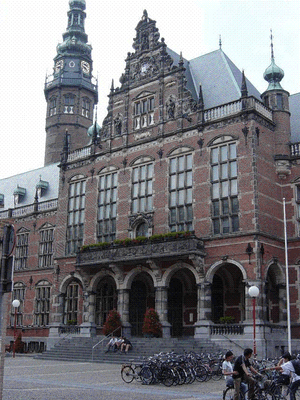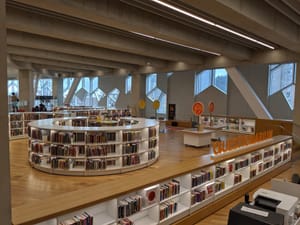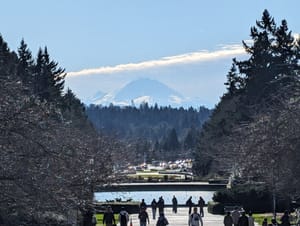The LIBER 34th Annual Conference in Groningen was a congenial event in an engaging city. LIBER, for those unfamiliar with it, is an organization which brings together European research libraries. I left thinking about three things, based on the presentations I saw and the conversations I had:
- Managing the collective book collection. There was much discussion of storage, institutional or shared, and of coordinated collection development, whether within national or consortial planning contexts. The collective management of the print book collection seems to be emerging as a general issue for research libraries, especially given the costs of managing redundant physical stores, the demands on library space for more social learning activities, and the general concern with value in a zero sum game funding environment. Such discussions have been given added topicality by the Google library digitization initiative as we think about library book collections in relation to their selective digitization. Throughout these discussions, I was struck by the value of having reliable data upon which to base planning, and in this context of the value of having a union catalog(ue). Of course the participation of libraries in union catalog activities throughout Europe, and the rest of the world for that matter, is variable. However, it is clear that the ability to extract ‘intelligence’ from a union catalog to support decisions about collective collection management, or to support a library in making decisions in light of decisions taken in other libraries, will be increasingly valuable.
- Libraries operate in different socio-political contexts which affect policy and planning. This is true when you think of the different countries represented at a meeting like this. Think, for example, of the nationally coordinated approach to collection development in Germany, where particular libraries have responsibility for comprehensive collecting within designated subject areas. This was described by Elmar Mittler at this event. More generally though, it is interesting to observe the variable role of government-sponsored agencies in service development and planning in many European countries. And to think about how government-sponsored infrastructure plays a role in library funding and organization. The situation is rather different in the US, which is much more decentralized. Of course, there may be analogies within certain jurisdictional contexts (think of California Digital Library or Ohiolink, for example, within their respective domains), but in general the conversations here have a different flavor than they would at, say, an ARL event: there is much more reference to the variety of national planning or funding contexts within which many of these research libraries – and their universities – work. For example, in discussions of open access, there were references to national programs like Dare or Fair, in the Netherlands and the UK respectively, where public money has been invested to advance a particular cause.
- Library business processes. I have written before about the standardization of library process, and suggested that a major feature of our current transition is that we are engaged in various new activities which have not yet been standardized as common processes, in the way, for example, that circulation, say, is. This means that it is difficult to realize economies through the development of common applications, which might be supplied cooperatively or by third parties. E-resource management is an interesting example of this. Partly based on the work of the DLF ERMI group, we are seeing the growth of a shared sense of what is involved in e-resource management. And this in turn gives third parties confidence to develop systems to support this activity. Tamar Sadeh presented Ex-Libris’ Verde system at the meeting, an example of a system which has been influenced by the DLF work. Of course, the importance of standardized processes for the management of e-resources is that this is where many libraries are putting an increasingly larger part of their materials spend and where users are requesting continued growth. The standardization of this particular process is work in progress, as we think about the configurations within which the knowledge bases which support this activity are managed across libraries and suppliers, and as we gain more experience of e-resource management systems in practice.




